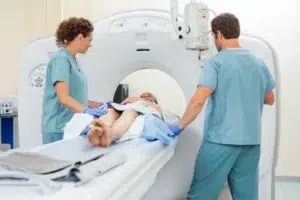The study aims to explore the structural, neuro-vascular, and biochemical differences in the brains of individuals with ME/CFS, Long COVID, and POTS to elucidate the underlying pathology and identify potential targets for effective treatment strategies.
Emerging evidence suggests a potential link between ME/CFS and Long COVID, characterized by similar symptomatology. Additionally, POTS frequently co-occurs with ME/CFS and LC, further complicating symptom management and reducing patients’ quality of life.
Neuroinflammation has recently gained attention as a potential mechanism underlying ME/CFS and LC, with proposed pathways involving sustained glial activation and hypothalamic neuroinflammation. Glutamate dysregulation in the central nervous system, possibly exacerbated by neuroinflammation, may contribute to neuroendocrine dysfunction observed in ME/CFS and LC. Furthermore, reduced brain blood flow could be central to all 3 conditions.
This study aims to investigate brain structural, neuro-vascular, and biochemical differences between groups to deepen our understanding of ME/CFS, LC and POTS pathology and develop effective treatments. By examining astrocyte activity, metabolic variations, cerebral blood flow responses to exercise, and neuroinflammatory markers, we seek to uncover key mechanisms driving ME/CFS symptoms and identify potential therapeutic targets.
